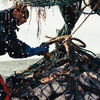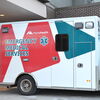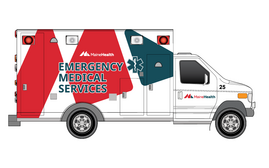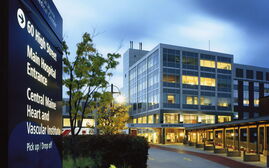
Processing Your Payment
Please do not leave this page until complete. This can take a few moments.
- News
-
Editions
-
- Lists
-
Viewpoints
-
Our Events
-
Event Info
- Business Leaders of the Year Reception 2025
- Women's Leadership Forum 2025
- On the Road with Mainebiz in Bethel
- Health Care Forum 2025
- On The Road with Mainebiz in Greenville
- On The Road with Mainebiz in Waterville
- Small Business Forum 2025
- Outstanding Women in Business Reception 2025
- On The Road with Mainebiz in Bath
- 60 Ideas in 60 Minutes Portland 2025
- 40 Under 40 Awards Reception 2025
- On The Road with Mainebiz in Lewiston / Auburn
- 60 Ideas in 60 Minutes Bangor 2025
Award Honorees
- 2025 Business Leaders of the Year
- 2024 Women to Watch Honorees
- 2024 Business Leaders of the Year
- 2023 NextUp: 40 Under 40 Honorees
- 2023 Women to Watch Honorees
- 2023 Business Leaders of the Year
- 2022 NextUp: 40 Under 40 Honorees
- 2022 Women to Watch Honorees
- 2022 Business Leaders of the Year
-
-
Calendar
-
Biz Marketplace
- News
- Editions
- Lists
- Viewpoints
-
Our Events
Event Info
- View all Events
- Business Leaders of the Year Reception 2025
- Women's Leadership Forum 2025
- On the Road with Mainebiz in Bethel
- Health Care Forum 2025
- On The Road with Mainebiz in Greenville
- + More
- On The Road with Mainebiz in Waterville
- Small Business Forum 2025
- Outstanding Women in Business Reception 2025
- On The Road with Mainebiz in Bath
- 60 Ideas in 60 Minutes Portland 2025
- 40 Under 40 Awards Reception 2025
- On The Road with Mainebiz in Lewiston / Auburn
- 60 Ideas in 60 Minutes Bangor 2025
- - Less
Award Honorees
- 2025 Business Leaders of the Year
- 2024 Women to Watch Honorees
- 2024 Business Leaders of the Year
- 2023 NextUp: 40 Under 40 Honorees
- 2023 Women to Watch Honorees
- 2023 Business Leaders of the Year
- + More
- 2022 NextUp: 40 Under 40 Honorees
- 2022 Women to Watch Honorees
- 2022 Business Leaders of the Year
- Nomination Forms
- Calendar
- Biz Marketplace
Women to Watch: Elizabeth McLellan brings medical supplies where they're needed most
 Photo / Tim Greenway
Elizabeth McLellan founded Portland-based Partners for World Health in 2009 to collect medical supplies and equipment that would otherwise be discarded, and deliver it to people in need in developing countries.
Photo / Tim Greenway
Elizabeth McLellan founded Portland-based Partners for World Health in 2009 to collect medical supplies and equipment that would otherwise be discarded, and deliver it to people in need in developing countries.
In the 1980s, Elizabeth McLellan worked as a nurse administrator at a trauma center in Saudi Arabia.
She had the opportunity to visit a hospital in Pakistan. There, she observed a surgeon just arrived from the operating room. He treated a man’s wound with a used bandage, wiped his hands onto his blood-stained scrubs, then continued to the next patient.
It was clear the hospital lacked basic supplies such as gauze, gloves and bandages. Nurses reused needles and handwashing sinks were missing.
“I thought, ‘How can this be, when we have so much in the United States that we’re throwing away every day?’” she recalls. “I thought, ‘Someday, I’m going to do something about this.’”
As the founder and president of Partners for World Health, she’s done just that.
The Portland nonprofit reclaims and organizes medical supplies and equipment from medical facilities to redistribute to facilities in need in developing countries and in Maine. It’s grown from McLellan’s single-handed initiative to an organization of 10 employees and over 500 volunteers each year.
In 2019, they shipped more than a dozen 40-foot containers, each carrying 15,000 pounds of supplies; 18 containers are planned for 2020. Overall, through partnerships with 202 medical facilities in northern New England, Partners for World Health has shipped over 337 tons to 58 developing countries.
Additionally, the nonprofit supports its own and other medical missions overseas and McLellan mentors students and nurses and developed a community service-learning program involving high school and college students.
In response to the pandemic, Partners for World Health has been making its resources available to health care facilities and first responders in New England communities.
Over the last few months, it has donated thousands of N95 masks along with gloves, personal protective equipment, ventilators and other items. It enlisted home-based volunteers to sew masks and gowns made of donated blue sterilization wrap that are distributed to local health care workers and first responders.
Just keep going
“Ten years ago, there was no plan,” McLellan says. “Sometimes, things just unfold. You step over the next bump and you keep going.”
Raised in Camden, McLellan’s mother was a nurse and her father a physician. She began her career as a registered nurse in 1976, working at medical centers in Boston and New Hampshire and earning degrees in nursing, public health and nursing administration from American University, Northeastern University, University of Southern Maine and Boston University School of Medicine (and an honorary doctorate of public service from St. Joseph College in 2015).
In 1986, she applied for a nursing administration position in Saudi Arabia.
“I have a sense of adventure,” she says. “I remember thinking, ‘What a great opportunity.’”
Discarded supplies
Over the next eight years, side trips to Pakistan and elsewhere made her aware of clinics and hospitals in developing countries where supplies were limited. When she returned to the U.S. to continue her clinical management career at Maine Medical Center, she saw first-hand the amount of discarded supplies destined for disposal.
In 2007, in her position and with extensive contacts with nurses on the floor, she orchestrated the gathering of supplies left behind in exam and patient rooms. At first storing the supplies in her home, within two years she collected 11,000 pounds of wheelchairs, crutches, wound care materials, gauze, syringes, tape, depends, gowns, alcohol wipes and more. In 2009, she rented storage space. Word spread of her efforts. Soon, volunteers arrived to move everything into the new space and organize it for distribution.
After two more moves, Partners for World Health landed at its current headquarters on Walch Drive and maintains additional storage spaces in Portland, Presque Isle and Bangor.
The first distribution went to Haiti in 2010, after a major earthquake. Since then, programs in Bangladesh, Cambodia, Cameroon, Colombia, Libya, Peru, Rwanda, Senegal, Sierra Leone, Tanzania, Turkey for Syrian refugees, Uganda, Liberia, Ethiopia, Nigeria Burundi, Sudan, Vietnam and Zimbabwe have received assistance.

for World Health had shipped stock in 2017, after the island was struck by Category 5 Hurricane Maria, but it was left in a shuttered hospital. Puerto Rican health officials discovered the stock in March and redeployed it for the pandemic.
The value of donated supplies in each container is $200,000 to $250,000. Clients pay only shipping fees, ranging from $18,000 to $28,000. That money goes to expenses like payroll and rent. Partners for World Health also raises money through fundraisers, grants and partnerships with resellers who buy expired products.
Immediate connection
In 2011, McLellan ran Partners for World Health’s first medical mission, to Cambodia. Now she leads six to seven missions per year, taking 10 to 15 medical practitioners. Participants pay their own way; missions are free to recipients. Missions bring supplies, provide surgical and primary healthcare services in partnership with local staff, offer training and education and assist with non-medical work like cleaning and repairing.
McLellan is always developing contacts. In Uganda, she paid an impromptu visit to one hospital, found a nursing administrator and introduced herself.
“I said, ‘Can I talk with you a few minutes? I’m a nurse,’” she explains. “When you tell someone you’re a nurse, it’s an immediate connection.”
The result? McLellan returned the following year with a training program.
“She has unbounded energy,” says Michael Curci, a retired Maine Medical pediatric surgeon who joined McLellan’s board last year.
Curci participates in separate medical missions and uses the nonprofit’s services.
“In the past, anytime I needed equipment I had to go to the hospital and beg,” he says. “I’m far more effective now.”
Two years ago, McLellan visited Curci’s Rwandan facility, where he conducts surgical training. Then she approached administrators at a local hospital to get help for Curci’s future programs.
“It’s amazing what she’s done, basically on her own,” he says.
“She’s so dedicated and she knows how to get what she wants,” says Nancy Kaye, a Partners for World Health director.
For McLellan, it goes back to people in need.
“I remember standing in line waiting to go through Saudi customs on one of my trips,” she says. “Other women, most from Bangladesh, were coming in as housekeepers and maids. They were going to be paid maybe a dollar a day. They were going to end up being abused and they were scared. No one spoke their language. It broke my heart. That’s why I stress to people, ‘You’ve got to commit to something that’s bigger than yourself.’”
Partners for World Health
40 Walch Drive, Portland
Founded: 2009
Number of employees: 10; volunteers (2019) over 300
Contact: info@partnersforworldhealth.org / www.partnersforworldhealth.org
In her own words
What triggered your career path?
My mother! After I graduated from college with no clear path but selling costume jewelry in the basement of Filene’s in Boston, she said, ‘This is not going to work.’ So she arranged for my entrance into Massachusetts General Hospital School of Nursing. I thank my mom everyday for making this decision, as it opened up so many doors for me throughout my career.
Did you have a mentor or role model?
No. I just followed the teachings, the sound principles instilled in us by my parents from years ago. When you start something you stick with it. Always find the good in people and look at challenges not as a problem, but just a situation with a solution. And find the solution.
What advice would you give your former self?
People have their own reasons for their comments, whether they be positive or negative. Try not to take it too seriously. Reflect on it; learn from it and move on.
What keeps you up at night?
Nothing!!! I have little worry, as what I do, I enjoy every minute of it and it is just a way of living.
What’s the last book you read?
“The Price of a Dream: The Story of the Grameen Bank,” by David Bornstein. I believe that it is important for all of us to find something to commit to that is greater than one’s own self interests. You can have a huge impact in many areas and all you have to do is try.













0 Comments